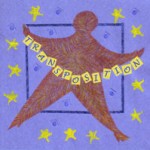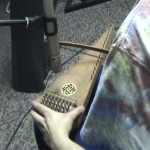Perusing through my CD collection recently , I noticed there were several that I seldom, if ever, listened to anymore. I thought about it for a while, and decided that the common denominator is that they’re all downers. They’re like musical dementors; when I listen to them they seem suck out the light and joy out of the world. Maybe I should get rid of them, but they’re all actually good, so I’m loath to. Well at any rate, here are the seven best downer CDs in my collection. It’s interesting to note that the majority were released in the 90s, and the rest in the 70s. Two depressive decades, I guess.
 1. John Lennon – Plastic Ono Band
1. John Lennon – Plastic Ono Band
Lennon’s first proper post-Beatles solo album must have been a shock to his fans. It’s very spare, with lots of space, and is filled with angst. It’s often called his Primal Scream album, because it came out of his primal scream therapy. And because he lets loose with some blood-curdling screams and cries, particularly on “Mother”, which is guaranteed to bring you down if you have any parental abandonment issues at all. “Working Class Hero” is a snarling Dylanesque indictment of those who hurt him in childhood, dropping a couple of F-bombs on the way. And in “God” he says “God is a concept by which we measure our pain” and then proceeds to tell us “the dream is over”. Finally, the album ends with “My Mummy’s Dead”. Happy happy joy joy. There are a few bright spots on the album, particularly “Love”, but the overall effect is a giant buzz kill after the highs of the Beatles era. Sometimes I blame this album for unleashing all the angsty (and often whiny) confessional albums that we have had to endure since (several of which are on this list). The dream is over, indeed.
 2. Pink Floyd – The Wall
2. Pink Floyd – The Wall
The Wall is Pink Floyd’s last great album, and the last one made with all four “classic” members. After Roger Waters assumed complete control of the band, the lyrics (and vocals) became increasingly strident. The album has a lot going for it; it’s a relatively coherent rock opera, has some classic songs, is loaded with symbolism and a lot of food for thought. It’s also very dark and very, very serious. Despite some faint attempts at black humor in “The Trial”, this album is bleak, indeed. Main character Pink can’t catch a break; his father is killed in World War II, his mother is seriously overprotective, his teachers at school are sadistic, his wife cheats on him, and he goes violently crazy. And that’s just in the first half! In the second half he wallows in ennui, gets pumped fulled of drugs, becomes a fascist, abuses his fans, and…well, you get the idea. A double album of this stuff is an emotional double-whammy to us sensitive types. And the movie is even more depressing.
 3. Beck – Sea Change
3. Beck – Sea Change
Sea Change is a breakup album par excellence; Beck had just broken up with his longtime girlfriend. For a brief moment, he stopped hiding behind cryptic lyrics and sampled grooves and revealed himself as a very earnest and plain-spoken singer/songwriter. “These days I barely get by/I don’t even try”, he sings in the album opener “Golden Age”. Even more poignantly, in “Guess I’m Doing Fine”, he confesses, “It’s only lies I’m living/It’s only tears I’m crying/It’s only you I’m losing/Guess I’m doing fine”. Sonically this is the most achingly beautiful record he ever recorded; it’s got a folkish bent with plenty of acoustic guitars and pianos, and everything is so crisp and clear it’s almost crystalline. Several tracks also feature lush strings arranged by Beck’s father David Campbell. The effect is heartbreak couched in rich satins and silks. But heartbreak still hurts, and there’s not a smile to be had here.
 4. Radiohead – OK Computer
4. Radiohead – OK Computer
It’s difficult for me to put my finger on exactly what is so disquieting about OK Computer. Maybe it’s the random noise and distortion that makes some of tracks sound like broadcasts from another planet. Maybe it’s the eerie intensity of Thom Yorke’s vocals. Maybe it’s the unexpectedly disturbing and violent imagery that emerges from even the most upbeat-sounding songs: “Crushed like a bug in the ground”, “the crackle of pigskin”, “a handshake, some carbon monoxide”, “open up your skull, I’ll be there”. The lyrics are filled with non sequiturs and give the impression that we’re listening to someone slowly sliding into madness. There’s no joy to be had here; in “Airbag” we are told “I’m amazed that I survived/An airbag saved my life” but it doesn’t sound like a cause for celebration, and perhaps the most musically joyful-sounding song is called “Let Down”. This is perhaps an album the Beatles might have produced after being held in a gulag for a couple of decades; tuneful, catchy, psychotic, and utterly ominous.
 5. Alice Cooper – Welcome to My Nightmare
5. Alice Cooper – Welcome to My Nightmare
This is the first solo album by Alice Cooper the man, as opposed to Alice Cooper the band. He collaborated with producer Bob Ezrin (who also produced The Wall) to consolidate his image as the epitome of shock rock in these dark and macabre tales. There are a lot of goodies here: the slinky title track and the pro-feminist “Only Women Bleed” are two standouts. And Vincent Price provides a campily sinister intro to “The Black Widow”. There’s also a feeble attempt at a successor to “School’s Out”, called “The Department of Youth”. The more disturbing second side kicks off with the darkly humorous and totally icky “Cold Ethyl”, but it’s the following trio of related songs that make for disturbing listening. Sung from the point of view of the character “Steven”, they’re a peek into a murderous and twisted mind. Despite the up and downs of this often inventive album, you’re left with a bad taste in your mouth.
 6. Nirvana – In Utero
6. Nirvana – In Utero
Nirvana’s last studio album was not exactly a pick-me-up when it first came out: lyrics like “I wish I could eat your cancer when you turn black” and “rape me, my friend” are decidedly dark. But following Kurt Cobain’s suicide, it became an abrasive tombstone. It’s the sound of an angry, unhappy man who can’t come to terms with life. For every gem of a song here, there is a blast of raging noise. As on previous releases, the lyrics are fragmented, often seemingly nonsensical. In fact, they make better sense if you mishear them. But occasionally they are clearly autobiographical, as on the opening track, “Serve the Servants”: “Teenage angst has paid off well”, Cobain sings, “Now I’m bored and old”. To me it doesn’t sound like he ever left the teenage angst behind.
 7. Smashing Pumpkins – Mellon Collie and the Infinite Sadness
7. Smashing Pumpkins – Mellon Collie and the Infinite Sadness
For me, this album has aged less well than any of the others on this list. I confess that I haven’t even listened to it for years. I will further confess that I think Billy Corgan is an ass. However, when it first came out, I thought it was brilliant. It’s sprawling and unfocused, but there are a lot of good tunes here: “Tonight, Tonight”, “1979”, “Bullet with Butterfly Wings”, just to name three. “Porcelina of the Vast Oceans” is just as beautiful as it sounds. But even at best the lyrics tend toward the pretentious, and there is also a lot of angsty whining which is made more strident by Corgan’s tinny voice. I’m talking about “Zero”, “X.Y.U.” and others which are just vehicles for venting bile. Somehow Corgan can make a line like “Into the eyes of the jackal I say ‘ka-boom'” sound deadly serious, but I think this album would have been much stronger and more enjoyable by editing out the tantrums. It’s no fun listening to someone feeling sorry for themselves for the better part of 28 songs.
 Obviously, the genesis of this tune is the same as “The Curse”, though the verse here was written slightly later than the two in “The Curse”. I knew that I wanted this version to be different, more claustrophobic, and the synth over heartbeat thing seemed to work. The sharp intake of breath at the end, meant to signify Jack’s surprise and fear at being discovered again, was inspired by the end of Queen’s “She Makes Me (Stormtrooper in Stilettos)” (from Sheer Heart Attack). This is one of only three songs on the album in which no other musicians participated.
Obviously, the genesis of this tune is the same as “The Curse”, though the verse here was written slightly later than the two in “The Curse”. I knew that I wanted this version to be different, more claustrophobic, and the synth over heartbeat thing seemed to work. The sharp intake of breath at the end, meant to signify Jack’s surprise and fear at being discovered again, was inspired by the end of Queen’s “She Makes Me (Stormtrooper in Stilettos)” (from Sheer Heart Attack). This is one of only three songs on the album in which no other musicians participated.









